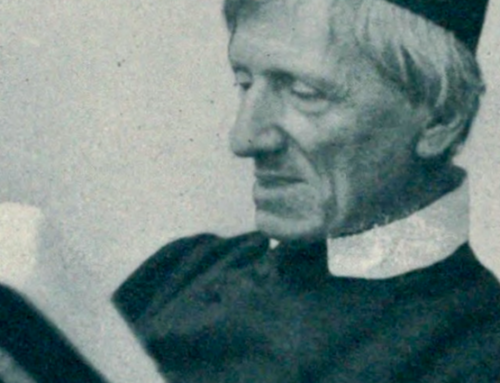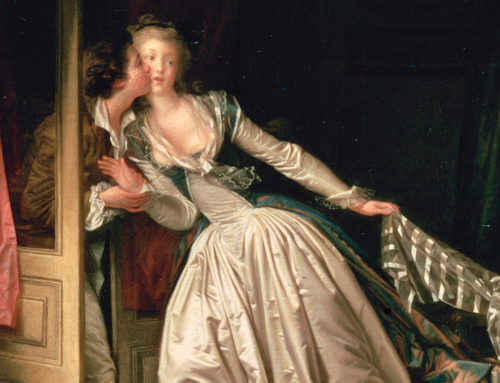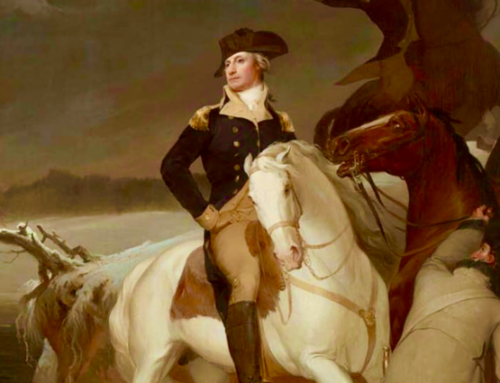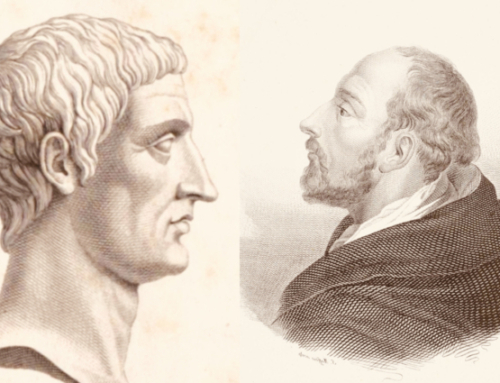In the dark, melancholic, skeptical background of Victorian England, Gerard Manley Hopkins’ poetry presents an image of God as a prolific Creator, loving Father, and consummate Artist who blesses man with abundant gifts of beauty to inspire and uplift the heart and soul.
 In the Victorian Age, the spirit of the times caused a crisis of faith in the conflict between science and religion reflected in the poetry of Alfred Lord Tennyson and Matthew Arnold. Darwin’s Origin of Species with its doctrines of evolution, accident, and the survival of the fittest gave scientific credibility to a worldview that opposed the Christian doctrine of Creation as the handiwork of God’s Providence. Tennyson’s In Memoriam A.H.H, an elegiac tribute to Arthur Henry Hallam, not only grieves for a beloved friend but also uses the occasion to mourn the loss of Christian faith in an age of doubt, pondering how man
In the Victorian Age, the spirit of the times caused a crisis of faith in the conflict between science and religion reflected in the poetry of Alfred Lord Tennyson and Matthew Arnold. Darwin’s Origin of Species with its doctrines of evolution, accident, and the survival of the fittest gave scientific credibility to a worldview that opposed the Christian doctrine of Creation as the handiwork of God’s Providence. Tennyson’s In Memoriam A.H.H, an elegiac tribute to Arthur Henry Hallam, not only grieves for a beloved friend but also uses the occasion to mourn the loss of Christian faith in an age of doubt, pondering how man
Who trusted God was love indeed
And love Creation’s final law—
Tho’ Nature, red in tooth and claw
With ravine, shriek’d against his creed.
Matthew Arnold’s “Dover Beach” also laments the loss of faith and certitude in an age of disbelief that deprives man of the convictions and consolations of Christian hope in God’s plan of salvation:
The Sea of Faith
Was once, too, at the full, and round the earth’s shore
Lay like the folds of a bright girdle furl’d.
But now I only hear
Its melancholy, long, withdrawing roar,
Retreating, to the breath
Of the night-wind, down the vast edges drear
And naked shingles of the world.
In this dark, melancholic, skeptical background of Victorian England, Gerard Manley Hopkins’ poetry presents an image of God as a prolific Creator, loving Father, and consummate Artist who blesses man with abundant gifts of beauty to inspire and uplift the heart and soul. Everywhere in the natural world God gives evidence of abundant love, bountiful generosity, and inexhaustible beauty. In “Pied Beauty” Hopkins wonders at the unmistakable richness of God’s ornate art and His distinct signature revealed in the many examples of mixed, variegated beauty of blended colors and combinations in the sky, on earth, and in the water:
Glory be to God for dappled things—
For skies of couple color-colour as a brinded cow;
For rose-moles all in stipple upon trout that swim;
Fresh-firecoal chestnut-falls; finches’ wings;
Landscape plotted and pieced—fold, fallow, and plow;
And all trades, their gear and tackle and trim.
If the invisible things of God are known by the visible, as St. Paul teaches, and if the heavens declare the glory of God in the words of the Psalmist, then the coupled-colored sky of azure blue spotted with patches of white clouds and the brown or black cows streaked with white and the rainbow trout flecked with dots all proclaim a resplendent world of gleaming tones and hues arranged to capture the essence of beauty: “that which being seen pleases” (id quod visum placet) in St. Thomas Aquinas’ definition of beauty. As above, so below. The pied beauty of the sky is mirrored in the brindled cow on the land and the stippled trout in the water. The pied beauty of the vast heavens is reflected in the smaller figures of cows, fish, and finches, and even the smallest things like flowers. As Hopkins observed of the bluebell in one of his journal entries, “I know the beauty of the Lord by it.”
The infinite variety of the mixed colors in the sky has its counterpart in the quilted landscapes of farmland, pastures, hills, and valleys. The birds of the air like the finch in golden wings show the same array of color that makes the cow and the fish also “dappled things” of exquisite art. Both things small like the finch in its golden-tipped wings and the roasted chestnut in the glow of color and things great like the sky and the landscape all reveal the telltale signs of the divine style with its harmonious order of unity and variety. They all declare the glory of God who speaks in the language of Nature’s beauty, multiplicity, and diversity for man’s delight and contemplation. All men in “their and tackle and trim” too share in this great work of art and likewise express the inexhaustible plenty of God’s creation by the diverse gifts of human hands, minds, and bodies in the many professions and trades that form a human world. This abundant, teeming world of infinite beauty and endless source of delight and wonder proclaims God’s nearness and presence. The glory of dappled things shows God incarnate in His creation as an artist reveling in its goodness.
The experience of pied beauty and dappled things creates a powerful impression that evokes wonder. It affects both the body and the soul, both the senses and the intellect. Beauty not only pleases the eye both also leads the mind to a contemplation of beauty, truth, and goodness. What is the source or cause of beauty? Why is the world filled with such great, endless reserves of beauty that never suffer diminishment? How is beauty a source of knowledge as well as an aesthetic pleasure and a delight for the senses? As Robert Frost wrote, a poem begins in wonder and ends in knowledge. All effects have causes, and all effects resemble their causes:
All things counter, original, spare, strange;
Whatever is fickle, freckled (who knows how?)
With swift, slow; sweet, sour; adazzle dim;
He fathers-forth whose beauty is past change:
Praise him.
Beauty fills the mind with wonder to marvel at the unique individuality of all created things Hopkins calls “counter, original, spare, strange.” All is new, fresh, and unrepeatable. “There lives the dearness oneness deep down things,” Hopkins writes in “God’s Grandeur.” Variety and contrast fill all of creation with a myriad of arrangements and combinations of blended, motley colors that make living things “fickle”—unpredictable and surprising—and “freckled” with extra touches of adornment. Movements (“swift, slow”) too have this quality of spontaneous, random, irregular turns, waves, and undulations that make them always incalculable. Tastes (“sweet, sour”) likewise contribute to the savor, zest, salt, and spice of life that rescues it from humdrum monotony and predictable sameness. In other words, God does all in His power, love, and Providence to keep man alive, engaged, energized, and passionate about the joy of life that never stops renewing the heart, soul, and mind with the active dynamic energy God’s never-ending generosity: “He fathers-forth” without limit to his goodness, and no matter the abundance of the beauty, the source (“whose beauty is past change”) never suffers loss or impoverishment.
God is not dead, defeated, or replaced as the Victorian poets of doubt contend. God has not disappeared or surrendered to science, materialism, evolution, or man. Nature “red in tooth and claw” reduces creation to the survival of the fittest with no sense of its transcendental or sacramental reality. The recurrence of pied beauty’s many appearances always infuses the radiance of God’s color and light into the world to paint it anew. The fickle, freckled nature of pied beauty brings freshness, excitement, and originality into life to rescue it from lethargy and stagnation. The wonder, passion, and thrill that pied beauty evokes keeps the beholder in a state of hope and in love with life.
As Hopkins shows in “God’s Grandeur,” “The world is charged with the grandeur of God. /It will flame out, like shining from shook foil; /It gathers to a greatness like the ooze of oil/Crushed.” Charged, flaming out, shining, or gathering to greatness, an explosive, dynamic energy releases its spiritual power into the world and makes all things new and resplendent. No matter the age of the world or the billions of people who have inhabited the earth or how many “Generations have trod, have trod, have trod;/ And all is seared with trade; bleared, smeared with toil;/And wears man’s smudge and shares man’s smell,” the world does not decay or atrophy from age or use. God’s life-breathing energy, like God’s fathering-forth, continues to preserve and sustain creation: “And for this, nature is never spent.” The freshness deep down things is always mounting and gathering momentum. Though the natural world is encircled in the darkness of night and the social condition of the world relegates man, in Arnold’s words, “on a darkling plain/ Swept with confused alarms of struggle and fright, / Where ignorant armies clash by night,” God’s Grandeur that shines in the refulgence of morning bursts or “springs” like a bird flashing through the sky at the first sign of dawn to bring light out of darkness and life from death. God’s illuminating spiritual activity in the world resembles the light of dawn dispelling the gloom of night and the flight of the birds rushing in their flight “Because the Holy Ghost over the bent world/ Broods with warm breast and with ah! bright wings.”
God fathers-forth. The world is charged. It flames out. God’s grandeur builds up and gathers to greatness. It shines out. Morning springs. The bird flies in a burst of energy. The Holy Spirit releases all this explosive, electric divine energy as God once again breathes life, light, love, warmth, and beauty into Creation and into the heart of man to deliver him from the doubt and despair of all the forces of darkness that kill the human spirit and stifle the leap of the heart that cries “Glory be to God for dappled things” and “Praise him.”
This essay was first published here in September 2018.
The Imaginative Conservative applies the principle of appreciation to the discussion of culture and politics—we approach dialogue with magnanimity rather than with mere civility. Will you help us remain a refreshing oasis in the increasingly contentious arena of modern discourse? Please consider donating now.
The featured image is an image from page 20 of Poems of Gerard Manley Hopkins (1918) and is in the public domain, courtesy of Wikimedia Commons.







I wish he could have been a professor of mine.
A great reminder to look for the particularity in the beauty of Creation, and I particularly like the author’s use of the phrase “the divine style.” An inspiring essay.